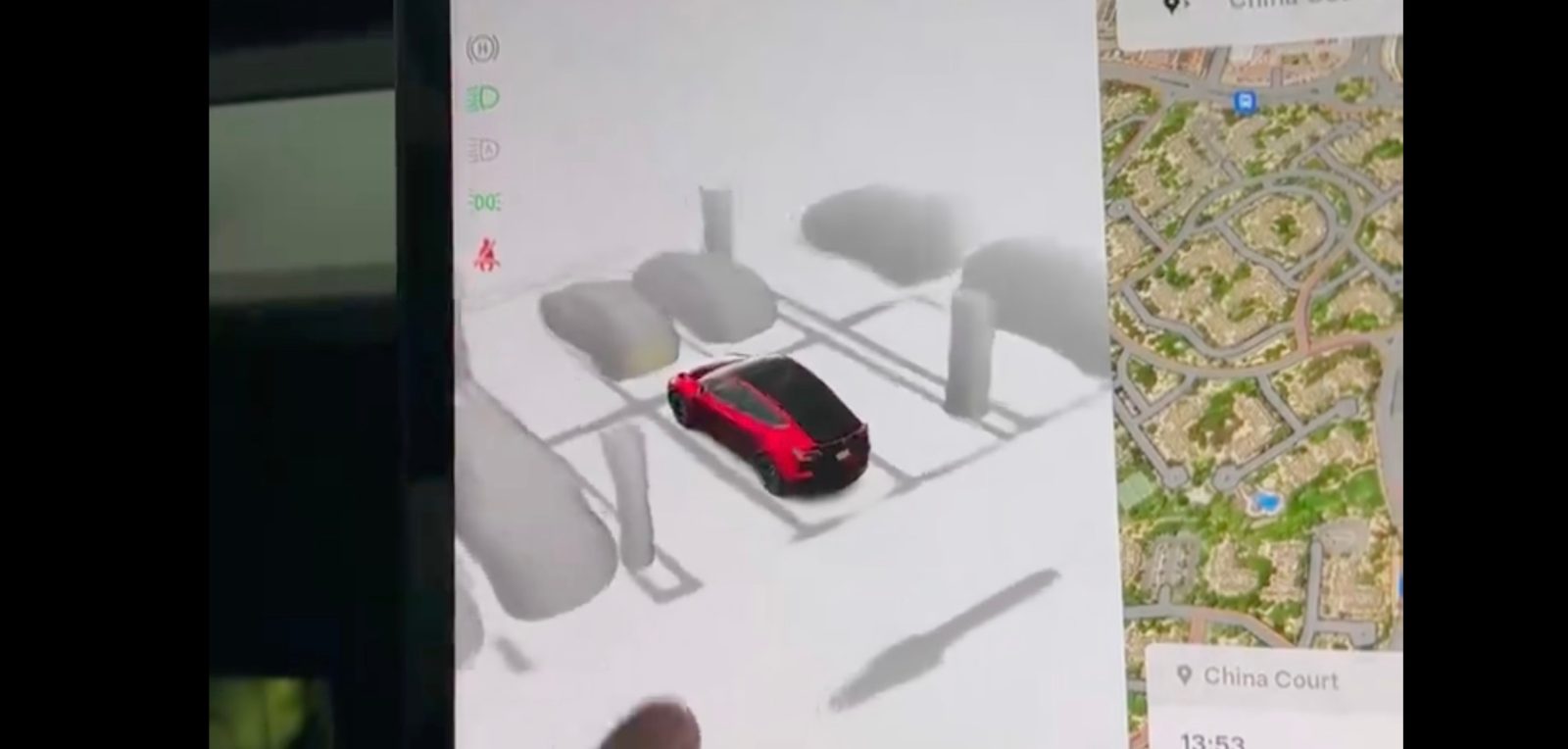
Tesla has unveiled a 3D reconstruction park assist system that serves as the long-awaited bird-eye view.
Bird’s eye view, a vision monitoring system that renders a view of a vehicle from the top to help park and navigate tight spaces, has become a popular feature in premium vehicles and it has even moved down market over the last few years.
It’s almost ubiquitous in most modern luxury cars and offered in tech packages in many less expensive vehicles.
Yet, Tesla, a premium brand, has never offered the feature.
CEO Elon Musk said that the feature is coming, but that was all the way back in 2020.
It took more than 3 years, but it is finally here – sort of.
Ashok Elluswamy, Tesla’s head of Autopilot software, announced a new “high-fidelity park assist” feature in a post on X:
While not a traditional “bird-eye view”, it basically performs the same function and more.
Top comment by FC
Tesla could simply add a camera to the nose of its cars and pop one on each underside of the side mirrors to offer people what they want, especially on the S/X which are priced so high. Instead we get this useless 3D rendering that uses the vision camera’s horribly unreliable distance judgement to approximate the surroundings of the car.
Elluswamy describes the feature:
This replaces the 2D obstacle band that customers had with a high-resolution 3D reconstruction of the Tesla’s surroundings. This is an extension of our Occupancy Network, with much higher resolution to help with tight parking maneuvers. The obstacles are modeled as a continuous distance field. This allows us to represent arbitrary shapes in a smooth and computationally efficient way. The vehicles you see are not some fixed meshes, but the network’s real-time prediction of the shape.
The engineer says that the feature is now coming as part of the Tesla Holiday Update, which is a welcomed addition as we previously reported that the update was otherwise quite weak.
However, the feature is only coming to Tesla Vision vehicles without ultrasonic sensors (Model 3/Y since 2022 and Model S/X since 2023).
Elluswamy says that the feature will eventually also come to older Tesla vehicles equipped with ultrasonic sensors, but he didn’t confirm a timeline.
FTC: We use income earning auto affiliate links. More.





Comments